Water Research Facilities
NREL supports industry partners in developing energy solutions by using state-of-the-art water research facilities and capabilities paired with the lab's hardware-in-the-loop simulation tools.
Get a closer look at the lab's tools and technology via NREL's 360-degree water power facilities tour, which includes the administration and engineering building, dynamometers, controllable grid interface, structural technology laboratory, and water power instrumentation laboratory.
Water Power Research Center Facilities
Learn more about the facilities in our water power research center as well as how to work with us.
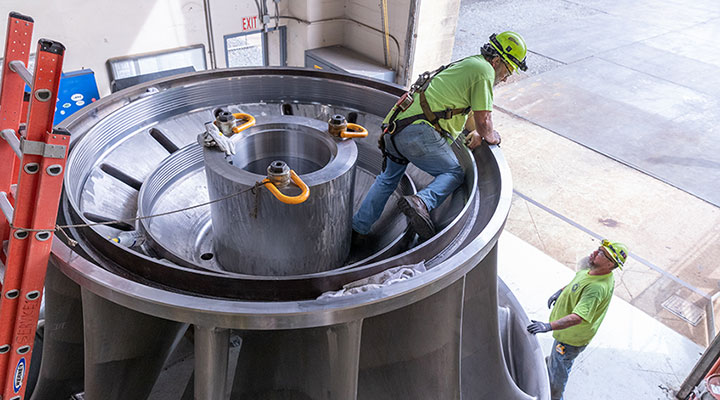
Dynamometers
NREL's dynamometers can evaluate power take-off systems for wave and water power components and subsystems—including generators, gearboxes, mechanical or electro-dynamic brakes, power electronics, control systems, and software.
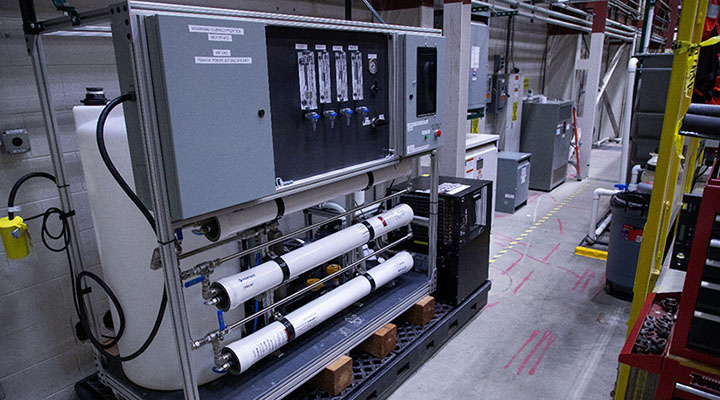
Membrane Characterization System
The membrane characterization system simulates various wave conditions to investigate if wave energy converters can power reverse osmosis systems to produce desalinated water.
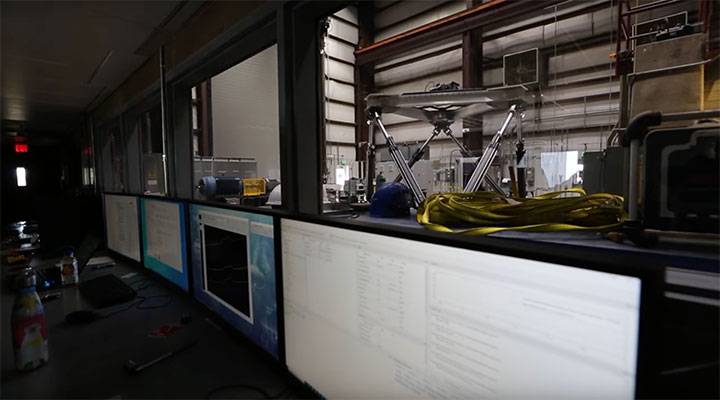
Motion Platform
NREL's large amplitude motion platform will be used for dry validation of small- or full-scale devices. The motion platform's controller can use real wave data to emulate actual sea conditions and modify motions in real time.
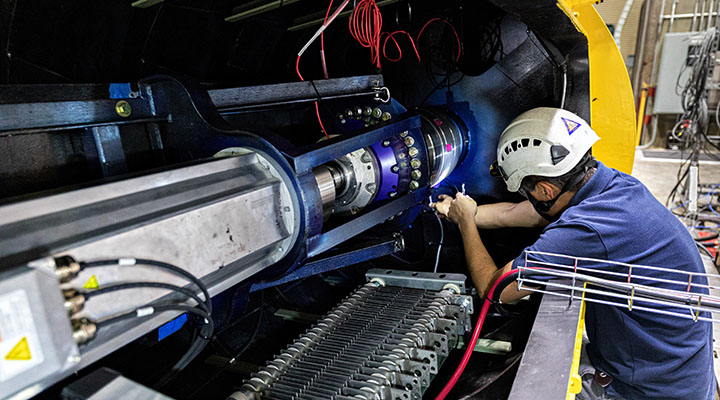
Nanogrids and Microgrids
NREL's facilities can emulate microgrids and nanogrids connected to marine energy and other technologies and pair modeling tools and hardware (hardware-in-the-loop) to more accurately evaluate emerging technologies.
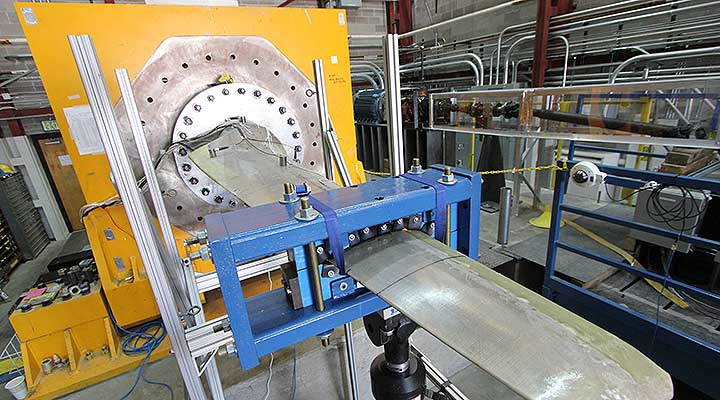
Structural Validation Laboratories
Three structural validation laboratories support the characterization and analysis of marine energy devices and components needed to simulate and optimize operational performance of designs from concept to production.
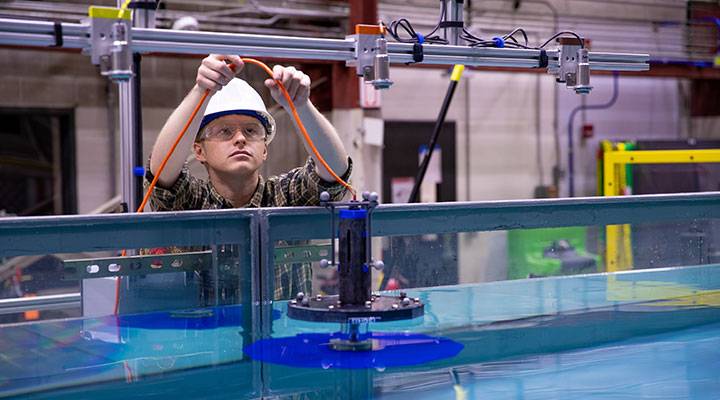
Wave Tank
NREL's wave tank, located in the Sea Wave Environmental Lab at the Flatirons Campus, is an ocean-simulation tool that can validate small- to large-scale wave and tidal energy technologies.
Related Water Facilities
Learn more about other facilities across the lab used for water research.
Advanced Research on Integrated Energy Systems
Advanced Research on Integrated Energy Systems is the nation's most advanced energy systems research platform—offering unmatched scale and complexity to accelerate the validation of secure, affordable, and integrated energy technologies across all sectors of the modern grid.
Composites Manufacturing Education and Technology Facility
NREL's Composites Manufacturing Education and Technology Facility supports water power, composites, and other industries in advancing materials and manufacturing research. Situated on NREL's Flatirons Campus, the 10,000-ft2 facility expands NREL's composite manufacturing research capabilities by enabling researchers to design, prototype, validate, and manufacture composite turbine blades and other components in one location.
Controllable Grid Interface
The controllable grid interface allows manufacturers and system operators to assess system responses to a range of grid conditions and conduct certification evaluations in a controlled environment. The simulator is fully integrated with two dynamometers and able to extend that integration to energy devices in the field.
Energy Systems Integration Facility
NREL's Energy Systems Integration Facility is a state-of-the-art user facility offering capabilities in areas such as advanced grid management and cyber resilience, with hands-on expertise to accelerate the development of future-ready, secure, and affordable energy technologies.
Water and Manufacturing
NREL conducts complex systems analyses that explore the flows of important non-energy-related resources in manufacturing, including the water-energy-materials nexus.
Share
Last Updated July 2, 2025
